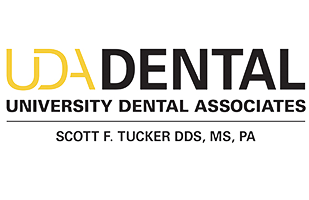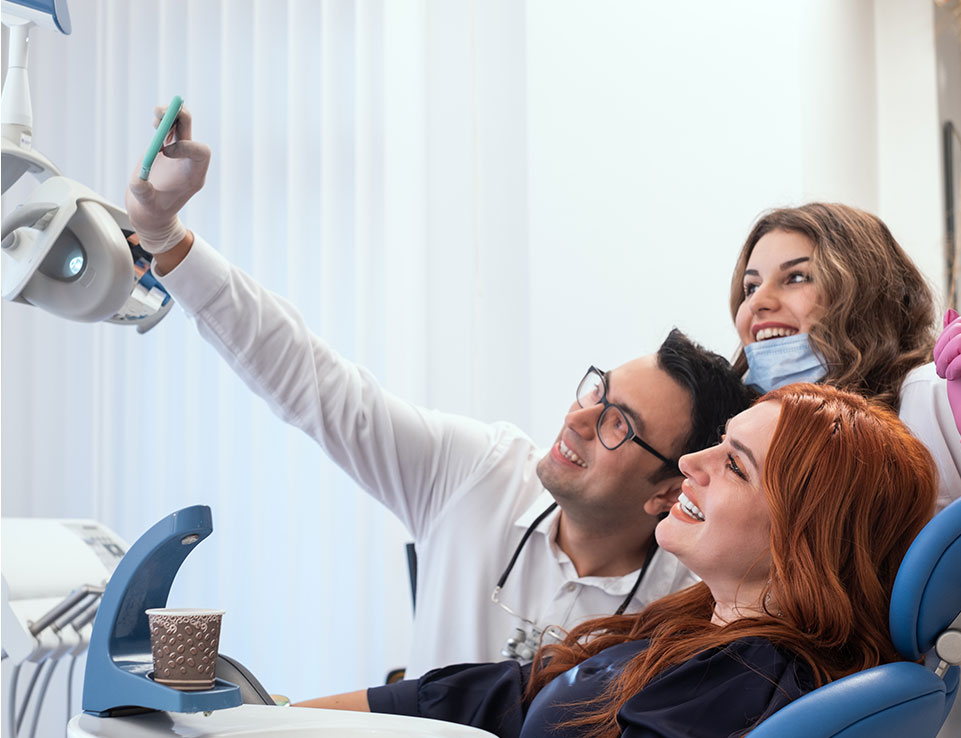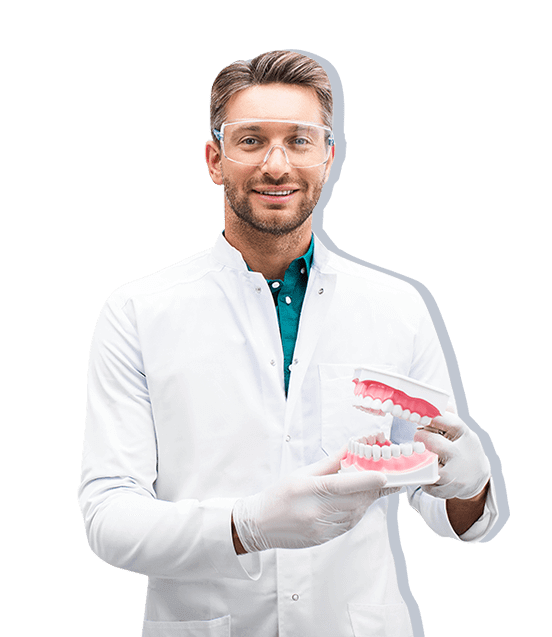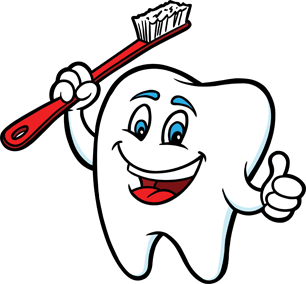Children's/Pediatric Dentistry
At University Dental Associates, our general and pediatric dentists are concerned about your child’s total health care. Good oral health is an important part of total wellness. Establishing us as your child’s “dental home” gives us the opportunity to implement preventive oral hygiene habits that help keep a child from dental and oral disease. We focus on prevention, early detection and treatment of dental diseases, and keep current on the latest advances in pediatric dentistry in the North Carolina area and industry-wide.
At University Dental Associates, North Carolina pediatric dentistry professionals take extra special care of your kids. That means smiles for you and your entire family. The American Academy of Pediatric Dentistry (AAPD) recommends your child’s first dental visit occur after the first tooth erupts and no later than their first birthday. We recognize that children and adults tend to have different dental needs. Our caring dental professionals know how to communicate with children in a way that will make them feel comfortable and at ease, establishing the expectation in their minds that a trip to the dentist doesn’t have to be something to dread – it can even be fun! Everyone, especially kids, should see the dentist to have their teeth cleaned every six months. Decay is more likely to happen when kids are young, so it is important to have regular appointments.
During each teeth cleaning and examination, you and your child can expect a:
- Preventative cleaning. The hygienist or dental assistant will clean and polish the teeth to remove sticky bacteria, called plaque. When plaque builds up, it can cause tooth decay. The hygienist or dental assistant will also teach your child proper brushing and flossing as needed, and answer any dental questions you or your child may have.
- Diagnosis of any dental conditions. The dentist will perform the exam and look for cavities or other dental conditions.
- Full oral examination to identify changes in the tissues of the mouth.
Your child’s hygienist or dental assistant will clean and polish your child’s teeth to remove plaque, a sticky film of bacteria, and tartar, the hardened plaque. Plaque and tartar can contribute to tooth decay and/or gum disease. The hygienist or dental assistant will also provide an overview of proper flossing and brushing techniques to ensure your child starts the right way from the very beginning.
Your child plays an important role in preventive dentistry as well. Self-care, such as twice-daily brushing and daily flossing, is essential in ensuring their teeth and mouth stay healthy. A good oral hygiene routine keeps their teeth clean between preventive dental appointments.
Preventive dentistry can result in less extensive—and less expensive—treatment for any dental conditions that may develop and help your child keep his or her natural teeth for a lifetime.
Your child’s hygienist or dental assistant will take x-rays of your child’s teeth to help us locate disease and cavities that can’t be seen by the naked eye. We recommend taking a full set of x-rays every three to five years and cavity check x-rays every year. We use low levels of x-rays to reduce exposure.
We recommend fluoride treatment for your child once a year or as needed during their regularly scheduled dental exam and cleaning. This treatment strengthens the mineral component of teeth, making them stronger and less susceptible to acid and cavities.
Even though gum disease is most common in seniors, children and teens are still at risk for gum or periodontal disease. It can be as minor as causing bad breath to something much more serious, like pain and tooth loss. No matter what stage of gum disease it is, it’s important that you bring your child to the dentist immediately if you think there is a problem.
Gum disease is usually caused by a buildup of plaque. Plaque contains bacteria, which produce toxins that irritate and damage the gums. Common symptoms include gum redness, bleeding while brushing or flossing, receding gum line, loose teeth, constant bad breath and mouth sores. It’s important to realize that pain isn’t one of the first symptoms of gum disease, so if your child is experiencing pain, the disease may be further along.
If your child’s dentist determines that it is gum disease, the dentist will remove the root cause of the problem first—the plaque on your child’s teeth. The dentist will clean all around the affected areas and go down to the bottom of the pockets of the tooth to remove the most harmful bacteria. The dentist will also look to see if there are any loose fillings or crowns that may need to be repaired and take X-rays to check for bone loss. If the disease is severe, or doesn’t get better with time, your child may need oral surgery.
Learn MoreSealants are a clear or white material applied to the chewing surfaces of teeth. They keep out plaque and food to prevent cavities. Your child’s hygienist or dental assistant will paint the sealant material onto the chewing surface of the back teeth where it bonds and hardens in seconds.
Sealants are commonly used with children and teens because decay is more likely to develop early in life. Studies have shown that early placement of sealants can prevent a lifetime of costly dental work, with the added benefit of a great smile!
Got a question? See our Frequently Asked Questions about dentistry for children, with answers from trusted dental care professionals in North Carolina.
Learn MoreYour Child’s First Visit
There seems to be a lot of confusion amongst parents, pediatricians, and dentists about the correct timing for the first dental visit.
When Should the First Visit be? Some family dentists may tell parents not to bring children to their practice before they have all their primary teeth (age two or three), sometimes they even recommend to wait until age 6. The parent of a fearful or uncooperative child may be told “we have to wait until your child is old enough to sit still”. Under unfavorable circumstances, delay of dental care can lead to catastrophic disease progression that is certainly not in the best interest of the child.The AAPD encourages parents and other care providers to help every child establish a dental home by 12 months of age. This means a child should have his or her first dental visit at the first birthday! What to Expect At this examination visit the dentist will record a thorough medical and dental history. Parents should be prepared to review the prenatal, perinatal, and postnatal period of their child’s development. Typically, children’s teeth are cleaned, fluoridated, and examined at the first visit. Not only is this beneficial to your child’s oral health, we learn a lot about your child and how they respond to dental health care in the dental office setting.For very young children, the oral examination is usually accomplished with the parent present in the room. It is most often only a visual exam. The child patient may be sitting in the parent’s lap with the head in the dentist’s lap (knee-to-knee position). Kids at this age vary in their behavior from simple curiosity to fussiness to downright hollering! Don’t worry, we are able to handle anything, and you should not be concerned.For older kids, a more thorough examination is performed, and x-rays are taken only as necessary and when the child is able to tolerate them. One important aspect of this visit is to discuss the child’s risk of developing oral and dental disease. Based on this assessment the dentist will determine the appropriate recall interval for the next dental visit. In high-risk cases this may be as early as three months. Dental decay in children can progress very rapidly. Dr. Kizer will also evaluate the child’s oral and dental development. The common question about “how many teeth at what age?” will be addressed. He will also evaluate the need for fluoride supplementation. It may be important to discuss non-nutritive oral habits (finger sucking, pacifier), injury prevention, oral hygiene, and effects of diet on the dentition. Dr. Kizer has been specially trained in behavior management techniques that will help your child through his/her appointments. Should extensive dental treatment be necessary, he will evaluate your child’s behavior and may recommend nitrous oxide (“happy air”) or other types of sedation to make your child more comfortable and relaxed.We invite you to stay with your child during the initial examination. During future appointments, however, we suggest that you remain in the reception room while we are working with your child. We find we can establish a direct and close rapport more quickly with your child when an “audience” is not present. Our purpose is to gain your child’s confidence and overcome any apprehension. When kids see that their parents are relaxed and unconcerned, they, themselves, are more relaxed and unconcerned!

















